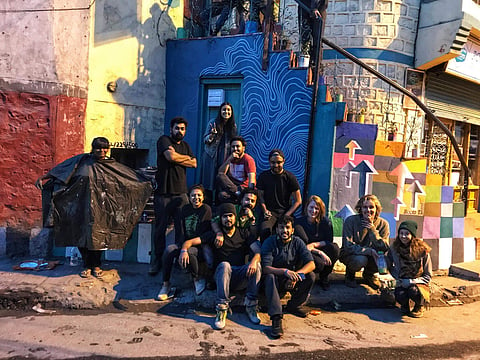

Himani Shastri (25) recently went on an cycle trip around Kargil. Zoyeb Shiekh (30) is planning to sign up for a rock climbing expedition in Suru, which is near Kargil. They are not alone. There will be at least 120 other tourists and travellers that will visit the place to get a much-needed culture orientation and try out some adventure sports.
Surprised? You shouldn't be. If you're one of those people who associate Kargil with images of war and constant killing and Pakistani militant types coming out of the woodwork, here's a news flash for you. It's been 19 years. If you're wondering what it's like living there, look no further than Muzammil Hussain and Tafazzul Hussain's Roots Initiative, a responsible tourism social enterprise, set right in the heart of Kargil.
The brothers, who left the district as young kids to study, came back to their homeland armed with the will to change the perception that people have about Kargil. "I studied design and management in Pune and worked as a consultant researcher in Delhi. Having spent a good seven years outside my hometown, I know what people really think of Kargil. They believe is a constant war zone. That's the image I wanted to change," he begins. So when the idea of starting a culturally integrated responsible tourism company came to him, he didn't waste time sharing it with his brother, who had just finished his studies in Delhi. "He was game. And we both followed out gut to find out if our tourism idea would work," Muzammil said.
But there were issues. Lack of infrastructure, zero hospitality values among the local youth and commercial barriers came in the way of the duo's plan. "Over and above that, we had insane family pressure to rescind our business plans. Like everyone else, even they were not sure if people would come to Kargil for leisure," Muzammi recalls.
The young, they say, are more determined than most. The decision had been made and there was no looking back. They tried to gather their strengths and devise a plan. "The good part is that Kargil is an important transit point. Tourists and traders stay here for a night and move on. Our motive was to make them stay longer," he smiles. So, how does one do that? How does one convince tourists that Kargil is worth their time? That's when Muzammil had a brainwave. Why not try adventure sport experiences? And that's how the Roots Initiative rolled out a combination of adrenaline-pumping activities for tourists that also talks about the cultural importance of the place.
The duo has also converted a few houses that were partially destroyed by the war into museum and homestays. "Kargil has a historical war narrative related to it. And there are many who want to explore that. A local family in the area runs the museums and we get to take bookings for it as a homestay sometimes," Muzammir explains. They're also helping with the conservation of the Himalayan Brown Bear, for which they received a little funding from Wildlife Trust of India (WTI). They organise workshops and carry out capacity building for the local youth to work on the projects.
Hang on, there's more — "In the long run, we want to promote the artists of the region and bring out restoration of the damaged property. We would also want to preserve the intangible assets of the place," Muzzamil concludes on a hopeful note.
